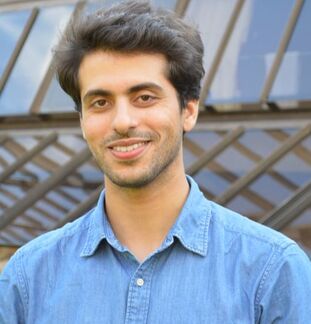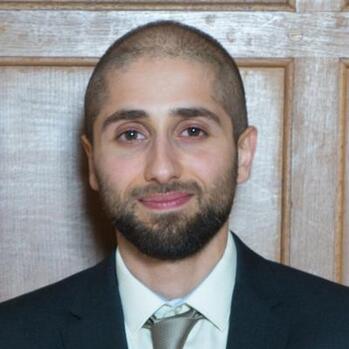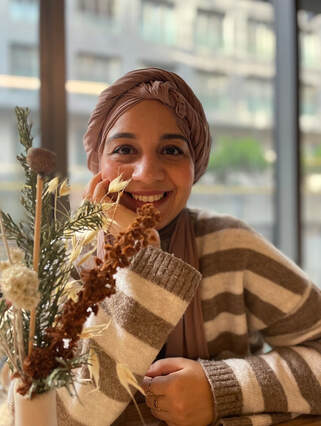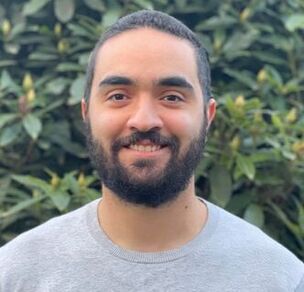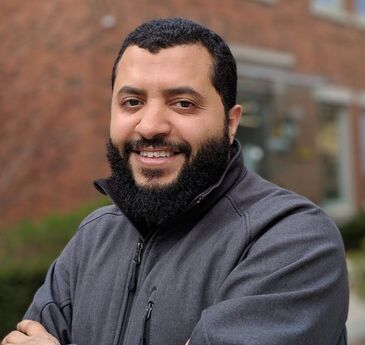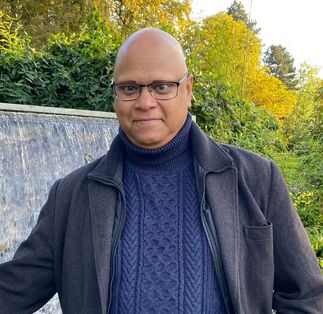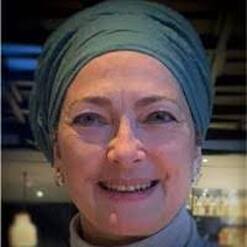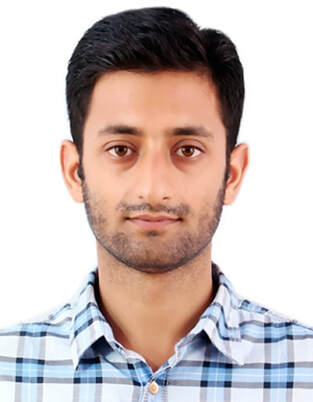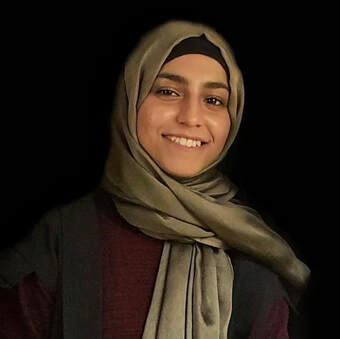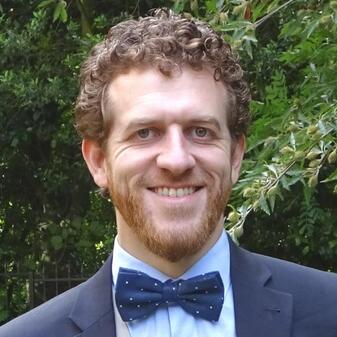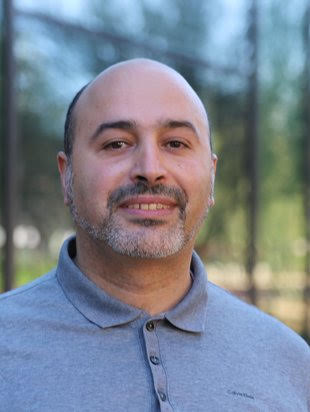The MRN mentorship scheme aims to connect early stage and aspiring researchers with more experienced academics. Our mentors are highly experienced and accomplished in a range of academic fields and are well acquainted with the struggles of climbing the academic ladder. The scheme will allow you to receive tailored advice on your specific academic ambitions - whether you are an undergraduate or Masters student considering a PhD, already a PhD student, or stepping into a postdoctoral position - all whilst gaining a unique Muslim perspective into the academic process.
To apply, please identify an MRN mentor of interest and fill out the dedicated form at the bottom of this page. You should include the name of the mentor you would like to be paired with, any specifics of the assistance you require, and any pending applications or interviews.
To apply, please identify an MRN mentor of interest and fill out the dedicated form at the bottom of this page. You should include the name of the mentor you would like to be paired with, any specifics of the assistance you require, and any pending applications or interviews.
Our Mentors
Dr Wahbi El-Bouri
Engineering
I am currently a Tenure Track Fellow at the Liverpool Centre for Cardiovascular Science at the University of Liverpool. Here I work at the interface of mathematical modelling, machine learning and clinical practice, working closely with cardiologists and epidemiologists to develop in-silico (computational) models of the cardiovascular system that can be used to aid clinical decision making. I also work on developing in-silico clinical trials such that new therapies can be simulated on virtual human subjects prior to being approved for costly clinical trials – a bit like how aeroplane manufacturers simulate their plane designs before building the expensive prototypes.
Prior to my post in Liverpool, I was a postdoctoral researcher at Oxford University building in-silico trials of stroke and its treatment. During that time, I was a Research Fellow at Keble College where I tutored engineering. I have also been a postdoctoral researcher at Southampton General Hospital, working on measuring intracranial pressure non-invasively. I completed my DPhil at Oxford University in mathematical modelling of blood flow in the brain. I also completed my MEng at Oxford University in Engineering Science.
Wahbi's Researchgate Profile
Google Scholar
LinkedIn Profile
Twitter: @WahbiKElBouri
Prior to my post in Liverpool, I was a postdoctoral researcher at Oxford University building in-silico trials of stroke and its treatment. During that time, I was a Research Fellow at Keble College where I tutored engineering. I have also been a postdoctoral researcher at Southampton General Hospital, working on measuring intracranial pressure non-invasively. I completed my DPhil at Oxford University in mathematical modelling of blood flow in the brain. I also completed my MEng at Oxford University in Engineering Science.
Wahbi's Researchgate Profile
Google Scholar
LinkedIn Profile
Twitter: @WahbiKElBouri
Dr Muhammad Meki
Economics
Dr Muhammad Meki is a development economist based at the University of Oxford, where he holds a joint position between the Department of International Development and the Centre for Islamic Studies. He is also affiliated with the Centre for the Study of African Economies (CSAE). He completed his PhD from the Department of Economics, University of Oxford, followed by a post-doctoral research fellowship until 2020. He has also previously completed postgraduate degrees in finance (MSc, LSE), economics (PGDip, Cambridge), and development economics (MSc, Oxford). Prior to academia, Muhammad worked for five years as a trader in the financial markets, for Bank of America in London and Deutsche Bank in Singapore. In his research, he is interested in the effect of equity-like financial contracts — involving, for example, shared ownership of fixed assets, sharing of revenue streams, or profit sharing — on the investment and growth of small firms. He has conducted fieldwork in Pakistan, Kenya, Bangladesh and Indonesia.
Dr Islem Rekik
AI, Neuroscience, Computer Vision
Islem Rekik is the Director of the Brain And Signal Research and Analysis (BASIRA) laboratory, and an Associate Professor at Imperial College London (Innovation Hub I-X). Together with BASIRA members, she conducted more than 100 cutting-edge research projects cross-pollinating AI and healthcare --with a sharp focus on brain imaging and neuroscience. She is also a co/chair/organiser of more than 23 international first-class conferences/workshops/competitions
Dr Rekik has been awarded prestigious international research fellowships including the EU Marie-Curie Fellowship in 2019 and the TUBITAK 2232 for Outstanding Experienced Researchers during 2020-2022. In addition to her 150+ high-impact publications, she is a strong advocate of equity, inclusiveness and diversity in research. She is the former president of the Women in MICCAI (WiM), the co-founder of the international RISE Network to Reinforce Inclusiveness & diverSity and Empower minority researchers in Low-Middle Income Countries (LMIC) and a committee member of the AFRICAI network. She is in the organising committee of MICCAI 2022 (Singapore), 2023 (Vancouver) and 2024 (Marrakesh).
Dr Rekik has been awarded prestigious international research fellowships including the EU Marie-Curie Fellowship in 2019 and the TUBITAK 2232 for Outstanding Experienced Researchers during 2020-2022. In addition to her 150+ high-impact publications, she is a strong advocate of equity, inclusiveness and diversity in research. She is the former president of the Women in MICCAI (WiM), the co-founder of the international RISE Network to Reinforce Inclusiveness & diverSity and Empower minority researchers in Low-Middle Income Countries (LMIC) and a committee member of the AFRICAI network. She is in the organising committee of MICCAI 2022 (Singapore), 2023 (Vancouver) and 2024 (Marrakesh).
Dr Mohamady El-Gaby
Biological Sciences
Dr Mohamady El-Gaby is a postdoctoral researcher in Neuroscience at the University of Oxford and also co-leads the Muslim Researchers’ Network. His research focuses on neural mechanisms of cognition. This work involves combining cellular, network, behavioural and computational approaches to investigate how our brains form abstract cognitive maps. His previous contributions include elucidating plasticity rules and neural codes involved in flexible learning. In addition to his research, he also delivers lectures and tutorials in Neuroscience to undergraduate students at the university of Oxford.
Dr El-Gaby's Google Scholar page
Dr El-Gaby's Google Scholar page
Dr Yasser Hassan
Material Sciences
Yasser obtained his PhD in Chemical Engineering and Applied Chemistry with Professor Greg Scholes and Professor Mitch Winnik at the University of Toronto in 2016. In doing so, he developed reliable and reproducible synthetic procedures to fabricate monodispersed quantum dots and hybrid perovskite 2D materials with functionalized surfaces suitable for optoelectronic applications. He also developed extensive knowledge of materials, nanochemistry, applied physics, solar energy conversion, photodetection, and photocatalytic applications. In 2016, Yasser commenced a post-doctoral research contract at the University of Oxford. He undertook experimental and modelling research work to solve various scientific challenges in nanomaterials-based thin film technology. Under the supervision of Professor Henry Snaith, Yasser launched and developed a nanomaterials laboratory, initiating an innovative and exciting research direction that continues to this day with several scientists. Yasser's research work at Oxford resulted in multiple academic journal publications including JACS and Nature. Yasser is co-authored 17+ peer reviewed papers and five patents. Dr Hassan is the co-founder of the Education Clinic group (followed by ~70K on FB), which focus on mentorship and helping undergraduate/graduate students in the Middle East to land in Western Universities to pursue their graduate studies. As a Board member, Yasser develops policies as well as building the structure of the organization. He is a team leader of both the Career resource centre and Science Dissemination centre. Helped more than 100 students reach their academic goals and revised their documents and applications.
Dr Hassan's ORCID page
Researchgate Profile
Dr Hassan's ORCID page
Researchgate Profile
Professor Arshad Jhumka
Computer Science
Arshad is a Professor of Distributed Systems at the University of Leeds. His main research focuses on the design of reliable and secure large-scale computing systems. He also has an interest in the application of Artificial Intelligence for social good. Arshad currently leads a group of six PhD students. He has successfully supervised over 15 PhD students previously. Professor Arshad has nearly 20 years experience in higher education.
Dr Rachel Abedi
Mental Health
Dr Rachel Abedi is a Child and Adolescent Child Psychotherapist with experience in NHS Child and Adolescent Mental Health Service (CAMHS), schools, the voluntary/third sector and in private practice. She is lead therapist of Reflection Network, a charity seeking to make mental health support more accessible to Muslim heritage children. This includes a child psychotherapy service at the Al-Manaar Muslim Cultural Heritage Centre in west London, and offers in various London boroughs. Rachel is an Associate Lecturer at the Tavistock & Portman NHS Trust, where she teaches on postgraduate courses such as Psychological Therapies with Children, Young People and Families (M34), and is also a doctoral research supervisor. Rachel has a particular interest in issues of identity, and the impact of intersectional aspects (e.g. faith, culture, experiences of poverty, prejudice and racism) on access to mental healthcare for children. She is a keen advocate of further research into issues affecting the mental and emotional welfare of Muslim children and young people. Her doctoral research (2021) focussed on CAMHS clinicians’ responses to the faith identity of Muslim children and families. She is also co-author of an NHS England-funded research project (2023) exploring the experiences of students from racially minoritized backgrounds undertaking post-graduate courses prior to clinical child psychotherapy training.
Other areas of specialism include the mental health of children in care and adopted children. She has contributed to reports on Muslim mental health in schools (Muslim Mind Collaborative) and Muslims and adoption (My Family Group).
Other areas of specialism include the mental health of children in care and adopted children. She has contributed to reports on Muslim mental health in schools (Muslim Mind Collaborative) and Muslims and adoption (My Family Group).
Dr Sami Ullah
Nanotechnology
Dr. Sami Ullah is a Post Doctoral Research Associate (PDRA) in the School of Earth Sciences, University of Bristol, UK, where he is working towards "Microbially mediated functionalised magnetic nanoparticles from acid mine drainage" project funded by the UKRI. Sami Ullah has a PhD in Functional Nanomaterials from the University of Bristol. His broad research focus is "Materials Science and Nanotechnology with a focus on sustainable solutions for clean energy generation and storage, and resource recovery from waste sources". His PhD explored, computationally and experimentally, the sustainable metals such as tin and their oxides as efficient terminations of Diamond surface for low work function applications. Besides, Sami Ullah has a keen interest in various other nanomaterials and thin films for the above mentioned applications.
Dr Hira Javaid
Oncology
Hira did her DPhil in Oncology at the University of Oxford, focusing on DNA Methylation and utilizing bioinformatics for early cancer detection. She is currently working at Hurdle Chronomics to develop biomarkers for disease diagnostics. Additionally, she engages in science communication, was featured on BBC News to explain her research, and was invited as guest speaker at the UCL 2023 Medical School Graduation Ceremony. Hira also offers guidance on Oxford and PhD admissions via her YouTube channel as well as research and productivity tools.
Dr Adrien Chauvet
Physical Chemistry
Dr Adrien Chauvet is a lecturer in Physical Chemistry at the University of Sheffield. Adrien obtained his PhD in Biophysics from Purdue University (USA, 2012). He then moved to Switzerland in the Swiss Federal Institute of Technology in Lausanne (EPFL) under a Marie-Curie postdoctoral fellowship, followed by a senior postdoc position at the University of Geneva (2015), working on new techniques for the elucidation and control of ultrafast photo-chemical processes. In 2016, he was appointed to a lectureship in physical chemistry at the University of Sheffield.
Dr Boumediene Hamzi
Artificial Intelligence
Boumediene Hamzi is a senior scientist at the department of Computing and Mathematical Sciences at Caltech. He co-leads the Research Interest Group on "Machine Learning and Dynamical Systems" at the Alan Turing Institute. His main research interests are the interface(s) of Machine Learning, Dynamical Systems and Algorithmic Information Theory in view of analysing complex systems and developing a robust theoretical framework for Machine Learning.
Boumediene has been studying Western and Islamic Philosophy for about 20 years. Currently, he is pursuing a part-time degree on Islamic Philosophy.
Boumediene has been studying Western and Islamic Philosophy for about 20 years. Currently, he is pursuing a part-time degree on Islamic Philosophy.
Dr Asma Lebbakhar
Education
Asma was awarded her PhD in 2023, having dedicated her research to exploring Equality and Diversity in Secondary Schools in England. Her academic journey began with the completion of a Master's degree in Education in 2018, further strengthened by a foundational degree in Sociology from the Open University. Bringing over a decade of experience in secondary education as a Modern Foreign Language Teacher, Asma has significantly contributed to the educational field with her expertise and passion for fostering inclusive learning environments.
Currently, Asma is engaged in educational research projects, where she applies her deep understanding of educational dynamics to investigate and influence positive changes within the system. In addition to her research, she has taken on the role of a lecturer in Critical and Creative Thinking Skills at Brunel University London.
Asma's interests are broad yet focused, encompassing educational policies, curriculum development, and Equity, Diversity, and Inclusion (EDI). Her work reflects her commitment to creating educational environments where diversity is celebrated and all students have the opportunity to succeed.
Currently, Asma is engaged in educational research projects, where she applies her deep understanding of educational dynamics to investigate and influence positive changes within the system. In addition to her research, she has taken on the role of a lecturer in Critical and Creative Thinking Skills at Brunel University London.
Asma's interests are broad yet focused, encompassing educational policies, curriculum development, and Equity, Diversity, and Inclusion (EDI). Her work reflects her commitment to creating educational environments where diversity is celebrated and all students have the opportunity to succeed.

